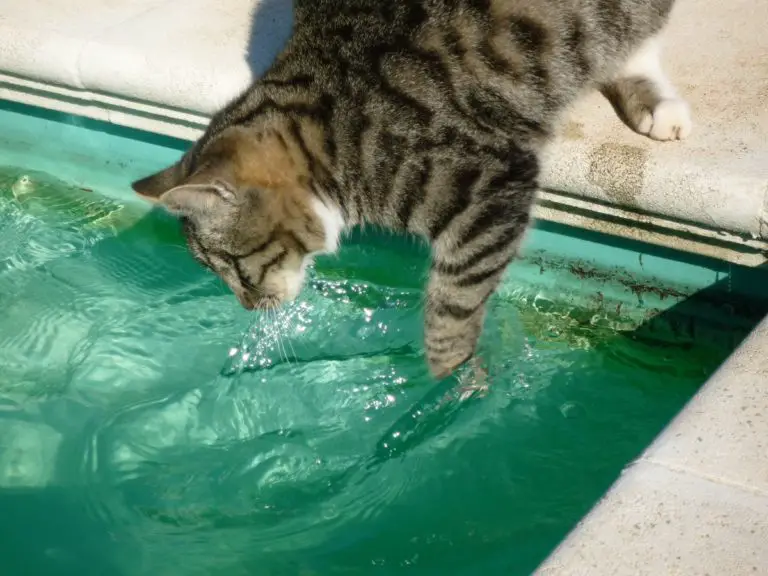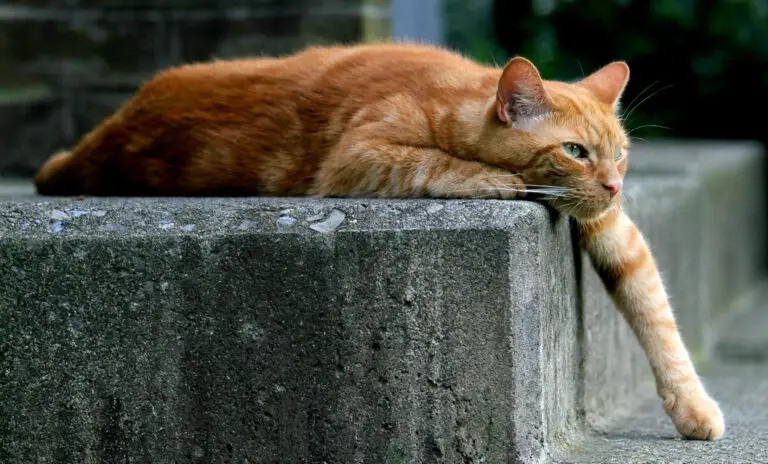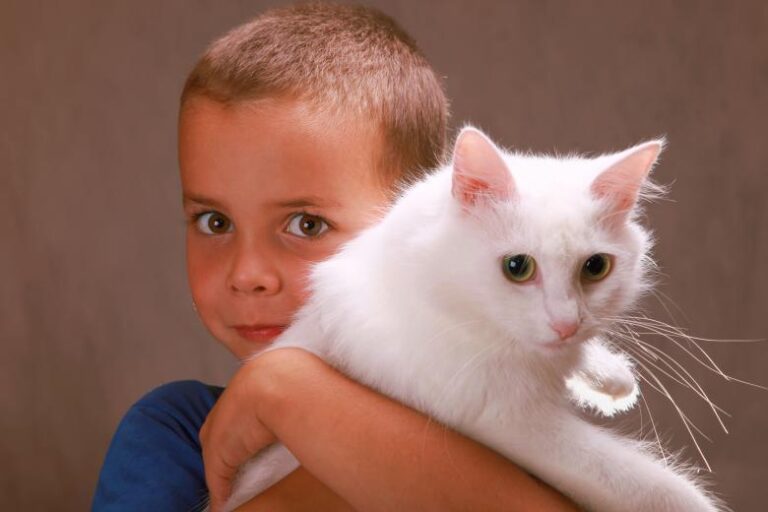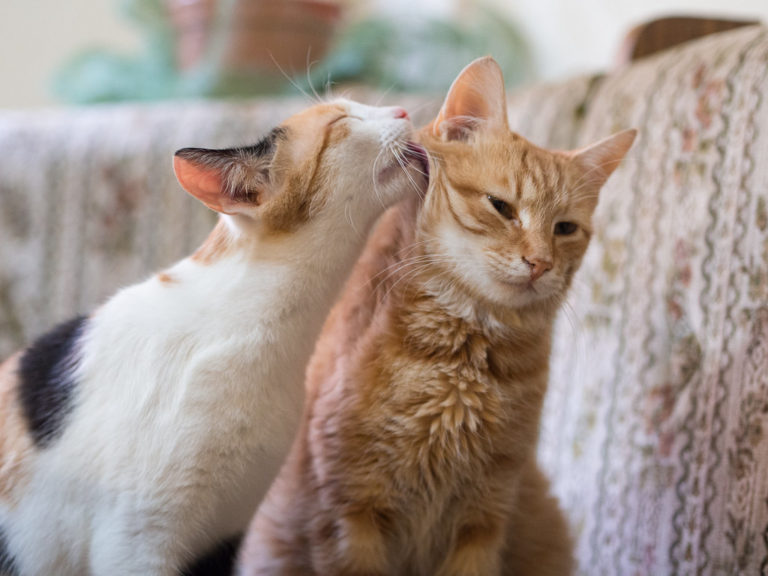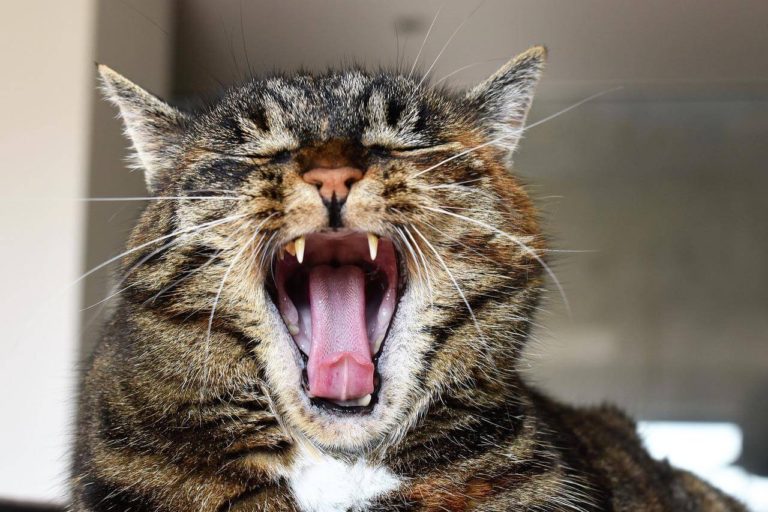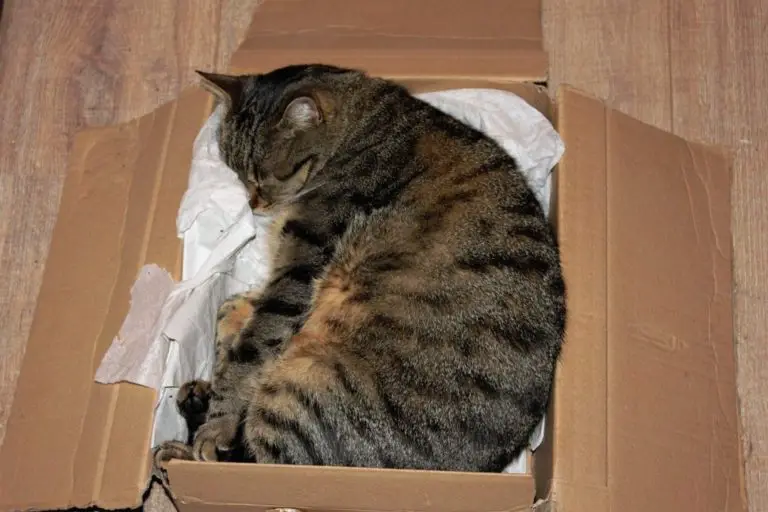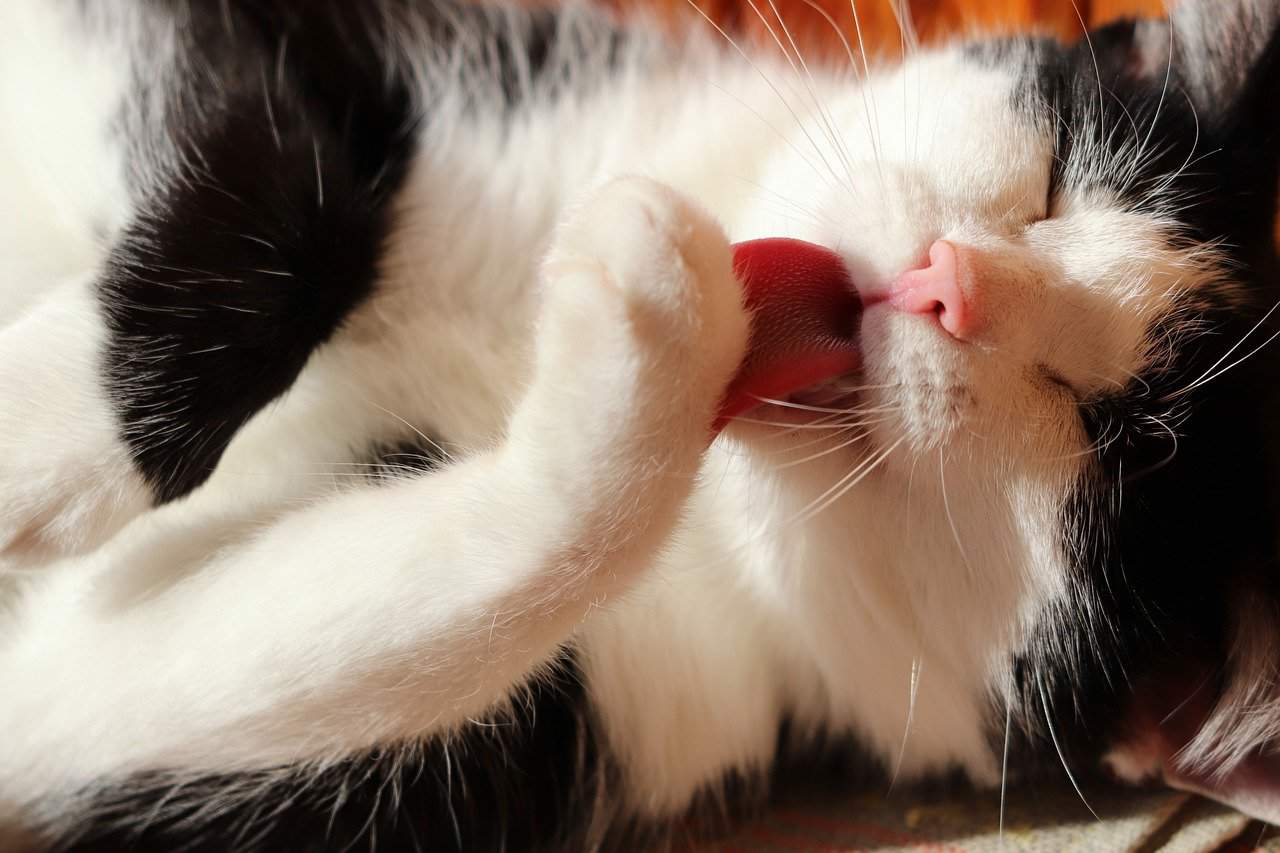
Cat licks are not dangerous. They are, however, unsanitary and can transmit bacteria that causes diseases like cat scratch fever.
Cat licks are unsanitary because they can spread bacteria that causes disease. A cat’s saliva contains a bacteria called Bartonella henselae that causes cat scratch fever in humans. It is a rare disease but can be serious for people with weak immune systems. The infection causes symptoms such as fatigue, fever, headaches and swollen lymph nodes.
The good news is that most people have natural immunity to this disease and do not get sick from it when exposed to the bacteria.
Cat licks are a normal part of cat behavior. They’re affectionate gestures and they help cats communicate with each other. Cats also use their tongues to clean themselves, so licking can be a way for your cat to show you that she loves you. However, there are some instances where licking can be dangerous for you or your cat.
Some people are concerned about cat saliva because it can contain the parasite Toxoplasma gondii. While this parasite isn’t dangerous to cats or humans, it’s potentially dangerous to pregnant women and those with compromised immune systems.
Infection with Toxoplasma gondii in humans usually causes flu-like symptoms that go away within a few weeks without treatment. In rare cases, infection can cause brain inflammation (encephalitis), which is potentially fatal.
Are Cat Licks Clean?
Cat licks are not clean! Your cat is licking you to groom herself, not to clean you. She may also be grooming herself to help her relax and sleep better. Cats lick themselves and their fur to remove loose hair, dirt and oil from their coat. This is why your cat may start grooming himself after eating or drinking something tasty (like milk).
Cats lick themselves because they’re grooming themselves. They’re also trying to remove something that may be bothering them, such as fleas or ticks. Cats also use their tongues to communicate with each other — licking is used as a greeting between cats and kittens, but it can also be used when a cat is upset or mad at another animal or person.
You may have heard that cat saliva is not good for you. In fact, there are some people who believe that it can be downright dangerous to have a cat lick your skin. But what’s the truth behind this old wives’ tale? Are cat licks clean or dirty?
Cat saliva is actually relatively harmless and contains little to no bacteria. This is because cats have evolved to be very clean animals who do not like getting dirty in any way, shape or form! So when your cat licks you, it is more likely trying to tell you something rather than attempting to give you an infection.
The real dangers come from other sources of bacteria such as open wounds or cuts on your skin, which could lead to infection if not treated properly.
Is It Ok if My Cat Licks My Mouth?
No! It’s not ok for your cat to lick you in any way. Your cat’s saliva can be very dangerous to humans. Cats have a higher concentration of bacteria in their mouths than dogs do, and those bacteria can cause serious infections in humans.
If your cat licks you, it’s probably because she sees you as her mother.
Cats are highly social animals, and they’re very good at reading body language. If you’re sitting on the couch with a book in your lap and your cat is near you, she may start to rub up against you or even jump up on your lap. If she’s done this before, that means she wants attention from you. But if she starts licking your face or mouth, it means something else entirely.
Cats use their tongues for a variety of purposes — grooming and cleaning themselves, getting food off their whiskers, tasting things — but when they lick their owner’s mouth, it’s usually because they want attention from them. It can be annoying for some people who aren’t used to having a feline friend around all the time, but it’s actually quite normal behavior for felines.
If you are exposed to your cat’s saliva on a regular basis, you may develop an infection called toxoplasmosis (toxo). This infection can cause flu-like symptoms as well as more serious complications in pregnant women or people with compromised immune systems such as HIV/AIDS patients or transplant recipients.
Is Cat Saliva Harmful to Humans?
Cat saliva can be dangerous to humans, especially if it’s a cat with health problems. Cat saliva is not as dangerous as dog saliva, however. If a cat licks you on the face or scratches you with its claws, there’s no need to panic.
Cat saliva is not always harmful to humans and does not contain any type of bacteria or virus that can make you sick. However, the bacteria from your own mouth may be transferred to the cat’s fur when you pet him. This could lead to an infection in your mouth if you don’t wash your hands after handling the pet.
Cats are known for their very specific eating habits. From the way they lick their paws to the way they clean themselves, cats have a unique way of taking care of their own health. One of the most common things that cat owners notice is the fact that their cat will often leave small amounts of saliva on things like furniture or clothing.
While this can be annoying, it’s actually not something to worry about. Cats leave saliva around because it helps them mark territory and keep track of objects in their environment.
However, there are some cases where cat saliva can be harmful to humans. The most common example is when people handle a cat who has an upper respiratory infection (URI). Cat saliva contains a number of proteins that can cause infections if they’re transferred to humans through petting, grooming or kissing.
Is It Ok to Kiss My Cats Fur?
Cats are known to be one of the most popular pets. They are cute and soft, and they can be very affectionate. But is it ok to kiss your cats fur?
There are many people who love to kiss their cats and dogs on their head, under their belly, or anywhere else that their pet may enjoy being touched and kissed. However, some people are concerned about what kissing your cat might do to them.
While cats may not appear to enjoy being kissed like dogs do, there is no reason you should stop if you want to do so. A cat’s saliva doesn’t contain any bacteria that can harm a human’s health. Also, cats don’t lick themselves like dogs do which means they don’t spread any germs this way either.
If you’re worried about germs that might be transferred from your cat’s fur onto your mouth when you kiss them, there are other ways you can show them affection without worrying about catching something from them. If you’re looking for a good way to bond with your pet, try playing with them instead of just kissing them on the head or belly every day!
Is Cat Licking a Sign of Affection?
Cat licking is a form of communication. It’s actually one of the most common ways that cats interact with each other and their humans.
Licking is a way for cats to show affection and love, so if you notice your cat licking you or another pet, it’s likely that they care about you.
Licking is often used as a way to mark territory. As a result, a cat might lick the area around its litter box, the floor or even your leg. If a cat licks you, it’s not necessarily because it wants to be affectionate; it may just be trying to mark you as its property.
But not all licking is the same! Licking may also be a sign of anxiety or stress in your cat. This can happen when she has a medical issue or when she’s feeling overwhelmed by new situations like visitors or a new pet in the house.
If your cat is licking you while you’re sleeping or relaxing on the couch, it could just be that she wants to give you some attention. This behavior can be seen in all kinds of species — from dogs who lick their owners’ faces when they wake up in the morning to humans who kiss each other when greeting each other.
Observing your cat’s behavior can help you determine whether she is trying to express her affection for you — or if something else is going on!

